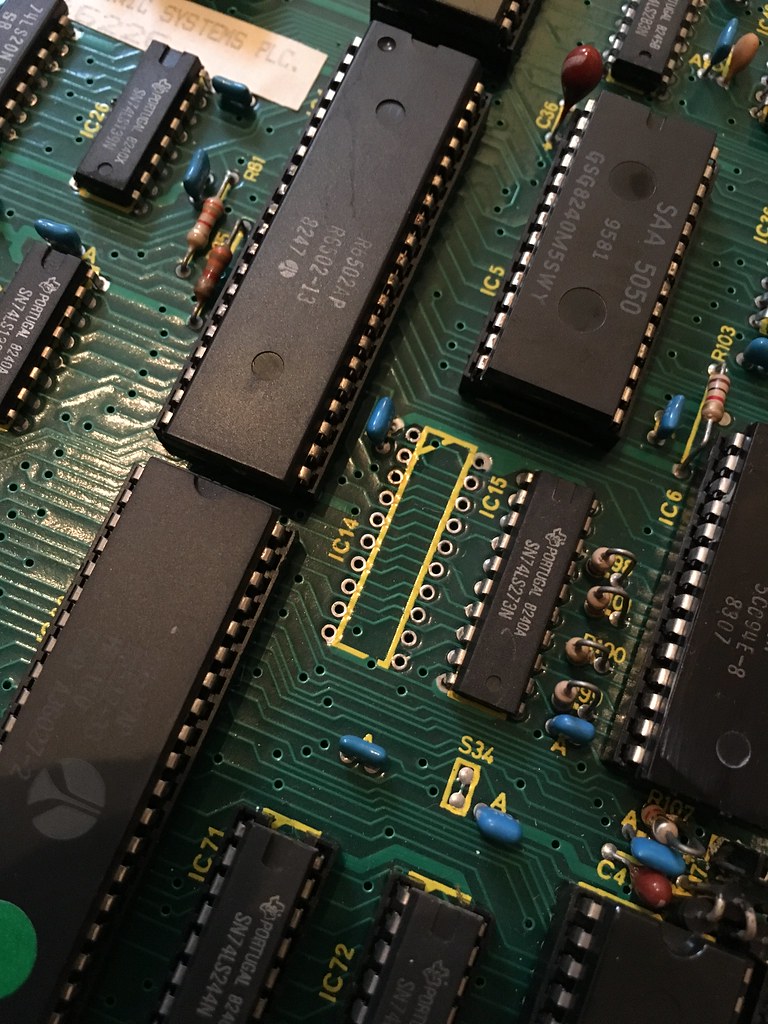Tony L
Administrator
easiest way is to snip the pins close to the body of the chip and then pull them out one at a time. Then clear the holes with braid.
I have a desoldering station but would still do it this way unless I needed to not destroy the chip.
Yes, once it occured to me that I really don’t care about saving the chips at all (one of the most likely candidates is only a quid) and that takes the fear right out of it. I know I can deal with standard thru-hole component desoldering/resoldering, and this reduces multi-legged chips to that level. I’ll socket anything I do. I’m hoping either the (nicely socketed) 6522s do it or failing that its IC14 which is a likely candidate as it interfaces the RAM to the system bus (that’s the one that will need soldering). Beyond that I’m likely running out of my depth fast and I’ll have to get a professional to fix it. This stuff quickly gets to the point of needing a scope and really expert knowledge of the Beeb. Thankfully there are several offering this service. I’m not bothered, the aim was to learn stuff and I don’t really care about the cost at all as long as I end up with a mint fully working Beeb. Its all peanuts compared to audio - lots of fun for less than a mid-priced interconnect cable in most cases!


